Bring back Brewster’s Millions.
I know what you’re thinking. As a major cinephile with deep film knowledge, you’re surely asking: “Another one? The Brewster’s Millions franchise already includes no less than thirteen adaptations, including four Indian, two British, and one Chinese version.”
“Seriously Evan,” you’re saying as you read this, “we all know that as recently as December the BET+ network released Brewster’s Millions: Christmas, a generational sequel to the 1985 comedy starring Richard Pryor and John Candy. The last thing we need is another installment of Brewster content.”
And yet we do. Not another version of the 1902 George Barr McCutcheon novel, mind you, but a fresh take more in line with the cultural appetites—and political demands—of our time. In the 2020s the spend-it-all-to-win-it-all challenge must be played out in the billions, and instead of narrative film it should be recast as prime-time reality TV.
Every iteration of the Brewster’s Millions story has thus far staked the protagonist’s success on the promise of riches far greater than the substantial sum they’re required to spend in a very short period of time. In our version, politician and philanthropist J.B. Pritzker will be rewarded by an even bigger prize if he can successfully spend down his billions: the preservation of American Democracy itself. Now that’s great TV.
Of all the billionaires who could play our modern day Brewster, why him? After all, presidential aspirant and reality TV personality Mark Cuban is even richer than the two-term Illinois Governor. It must be him because without democracy there simply would be no J.B. Pritzker. Without a constitution and the rule of law, there never would have been a Pritzker family fortune, nor safety for Polish refugees, or protections for religious minorities.
Pritzker is already applying the levers of gubernatorial power and his public prominence to push back on Trump’s authoritarian moves, speaking up forcefully for human rights and this week calling for mass mobilization against the administration. Plus, he knows how to strategically destroy his own wealth: in 2012 Pritzker and his wife removed the toilets from the mansion they purchased next to their own, declaring it uninhabitable and driving its value from $6.3 million to $1.1 million to reduce their tax burden. It takes that kind of ingenuity to be a contestant on Pritzker’s Billions.
Pritzker leverages every last dollar and the gravity of his stardom to elect a progressive slate and shift the balance of power back towards the working class. Half of these funds are dedicated to recruit former federal employees wrongly terminated by the Trump Administration, as the audience eagerly tunes in each week to root for season three’s lovably vengeful comeback kids.
The 1985 film that first introduced many of us to Brewster runs on a thirty day challenge, a tightening of the original written version that spans a whole year. One month may have been enough time for Richard Pryor’s Brewster to spend $30 million, but our real life contestant will be tasked with deploying an exponentially greater fortune last estimated at $3.7 billion. For this latest expansion of the Brewster cinematic universe, we’ll take a page out of The Truman Show and watch along while J.B. Pritzker tries to spend it all over the course of three full years.
How will he do it? Episodes of Pritzker’s Billions will feature zany, one-off expenditures to keep things fun and interesting, but I envision J.B.’s attempt to empty his pockets resting on three main areas of spending:
Progressive candidate development and support
Liberal institution building
Media buying
By “media buying,” I’m not talking about paid advertisements on local networks. I’m talking about . In season one of Pritzker’s Billions, the hotel scion ponies up to take over this platform by shelling out a cool $750 million. It was valued at $650 million two years ago; assuming the price has doubled by the time J.B. buys a majority stake he should be able to drop a good chunk on change on Substack alone.
Who better than the man that built and chaired the Illinois Holocaust Museum and Education Center to take on Substack’s pesky nazi problem? And while he’s at it, Pritzker can use his newfound ownership to clear out the growing cadre of extremist, propagandist, and hard-right Substack publications.
Beyond shoring up our public discourse, this blunt ideological purge also locks in financial losses: just as Richard Pryor’s Brewster relies on massive attorney’s fees, a raft of costly first amendment lawsuits helps to hedge against the asset value of the newly purchased platform.
In season two comes Pritzker University, a tuition-free college founded to advance the study of history, civics, law, and hotel management. Fed up with donor-dependent universities buckling to Trump and right-wing cancel culture, our star decides to spend heavily, lifting up independent thought and academic freedom. The small upstart school’s brick-and-mortar expenses alone run a billion, with another billion of initial operating expenses.
After watching Columbia University—New York City’s largest private landowner—compromise its core mission when boxed in by capital and real estate interests, J.B. wisely determines that Pritzker U. will not own any of its properties. In an effort to avert accumulating anything of value, Pritzker U. will go even further: season two follows Pritzker’s delightfully absurd efforts to rent absolutely everything: from buildings to educational materials to physical tools and devices.
While the budding Pritzker U. educates the next generation of liberal free-thinkers, in season three J.B. deploys his final billion personally training and funding the current generation of insurgent progressive political candidates. By now, with few dollars and even fewer fucks left to give, J.B. has no illusions about defending the status quo. PritzkerBucks SuperPAC could buttress incumbent liberal Democrats in tough reelection battles, but its sole funder has become convinced that six more years of Mark Kelly and John Fetterman won’t be enough to undo the damage from a second Trump term.
Pritzker leverages every last dollar and the gravity of his newfound TV stardom to elect a progressive slate and shift the balance of power back towards the working class. Half of these funds are dedicated to recruit former federal employees wrongly terminated by the Trump Administration, as the audience eagerly tunes in each week to root for season three’s lovably vengeful comeback kids.
As we approach the final episodes of Pritzker’s Billions, our protagonist is poised to end the challenge with a zero balance. Pritzker’s bankruptcy is all but assured, as is the revitalization of American democracy. Polling in advance of the November 2028 elections points to historic progressive wins and Pritzker U. has reset the standard for academic freedom.
While its balance sheets project a net negative, the Pritzker-owned Substack has dramatically countered the pernicious influence of the manosphere and the right-wing media ecosystem, flooding the zone with truth and decency.
By “media buying,” I’m not talking about paid advertisements on local networks. I’m talking about Substack. In season one of Pritzker’s Billions, the hotel scion ponies up to take over this platform. Who better than the man that built the Illinois Holocaust Museum to take on Substack’s pesky nazi problem?
But it wouldn’t be a real Brewster’s story without a few curve balls: Inspired by the principled impact of Pritzker U., a group of anonymous donors gifts the school $20 billion, an 11th hour asset appearing on Pritzker’s books due to an unfortunate proviso in the institution’s original articles of incorporation.
Then a collective of diehard Pritzkerheads launches a commemorative Pritzkercoin, the first of which is graciously accepted live on air by the former Illinois Governor. The memecoin skyrockets in value on the strength of the show’s popularity and Pritzker’s name recognition, and a decentralized “smart contract” accumulates the total market value of all Pritzkercoins to the holder of the first—another infusion of $5 billion in digital currency.
In a final stunning turn of events, the Supreme Court settles a class-action first amendment lawsuit in favor of Substack. “Substack v. Maher et. all” awards the company $1 billion in damages and another $500 million in legal fees to be repaid by Real Time host , , and others.
On the news of this Supreme Court decision, Substack’s value doubles overnight and a minority ownership group maneuvers for an initial public offering. Unable to counter the effort, Pritzker sells his share of the company back to the previous owners for $1 and focuses on rapidly spending the fresh collegiate and crypto billions.
A historian of both cinema and economics, J.B. is well prepared for this moment. Plans are in place to expand Pritzker U. to three new cities, with one of the last episodes of series dedicated to site visits in New Orleans, Las Vegas and Seattle.
Yet with two weeks remaining, Pritzkermania runs “to the moon” and the total value of Pritzkercoin only continues to rise. J.B. begs the crypto holders to sell it all and tank it to zero, but the effort backfires and he is left with no choice but to cash out and get creative with $6 billion (after taxes). At this point, in classic Brewster’s fashion all Pritzker can do is pursue the one remaining path to surefire bankruptcy: spend it all on a write-in campaign for President of the United States.
He drops $2 billion on paid advertisements, another billion on a 50-state organizing outfit, half a billion on consultants, and another half a billion on state Democratic parties for coalition insurance. The final $2 billion are spent on a mad-dash rally tour renting out arenas and stadiums all over the country, complete with high-ticket musical acts and gourmet catering for every attendee.
With his remaining cash on hand, live on the series finale Pritzker buys two Chicago-style hot dogs from a street vendor, then washes them down with a $40 bottle of campaign-funded Malört. It’s Pritzker in a landslide.
ICYMI, check out these related posts:
4 Years Ago Today, AOC Became Our Next President
Governor Pritzker has some juice, as does Senator Warnock. I still like Governor Walz. But nobody vying for higher office has the degree of charisma and communications brilliance of AOC, and what’s more: her world view and political brand are deeply rooted in the anti-system, populist energy currently coursing through the country’s political veins.
Devouring Decades: Seven Days of Radical Collapse
Some memes are so perfect, they beg to be written about.
Breaking the System
Let the progressive left fund insurgent primary campaigns with a $100 billion Sanders-endorsed $Berniecoin.


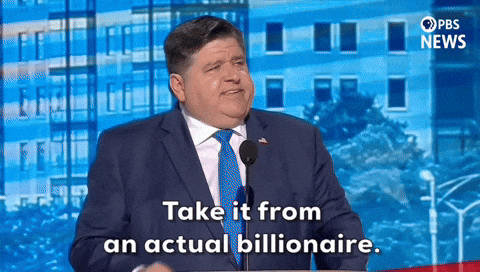


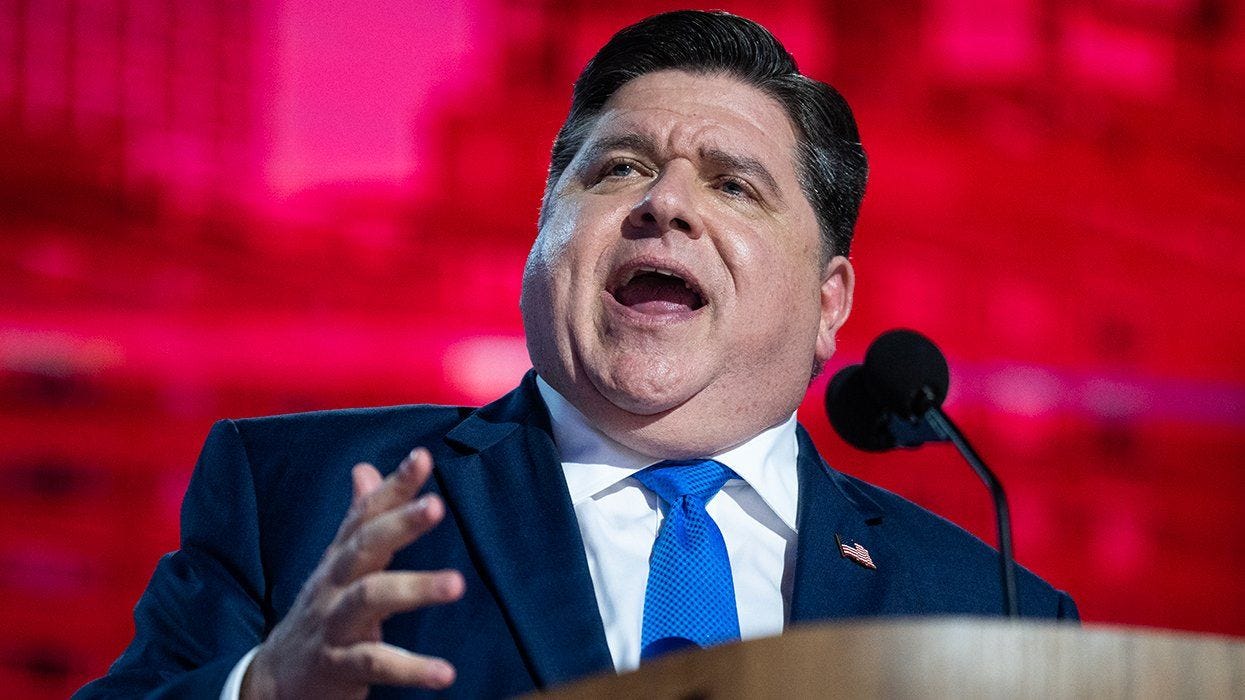
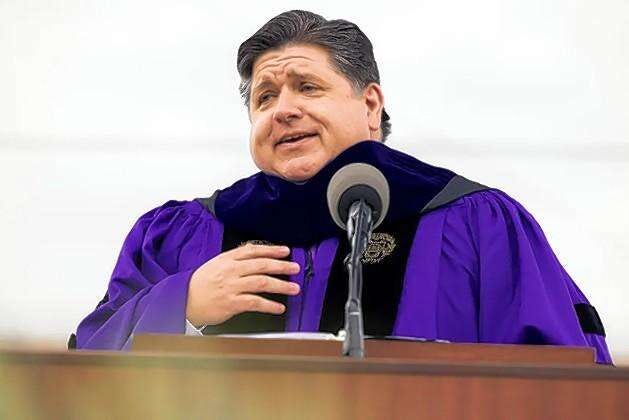
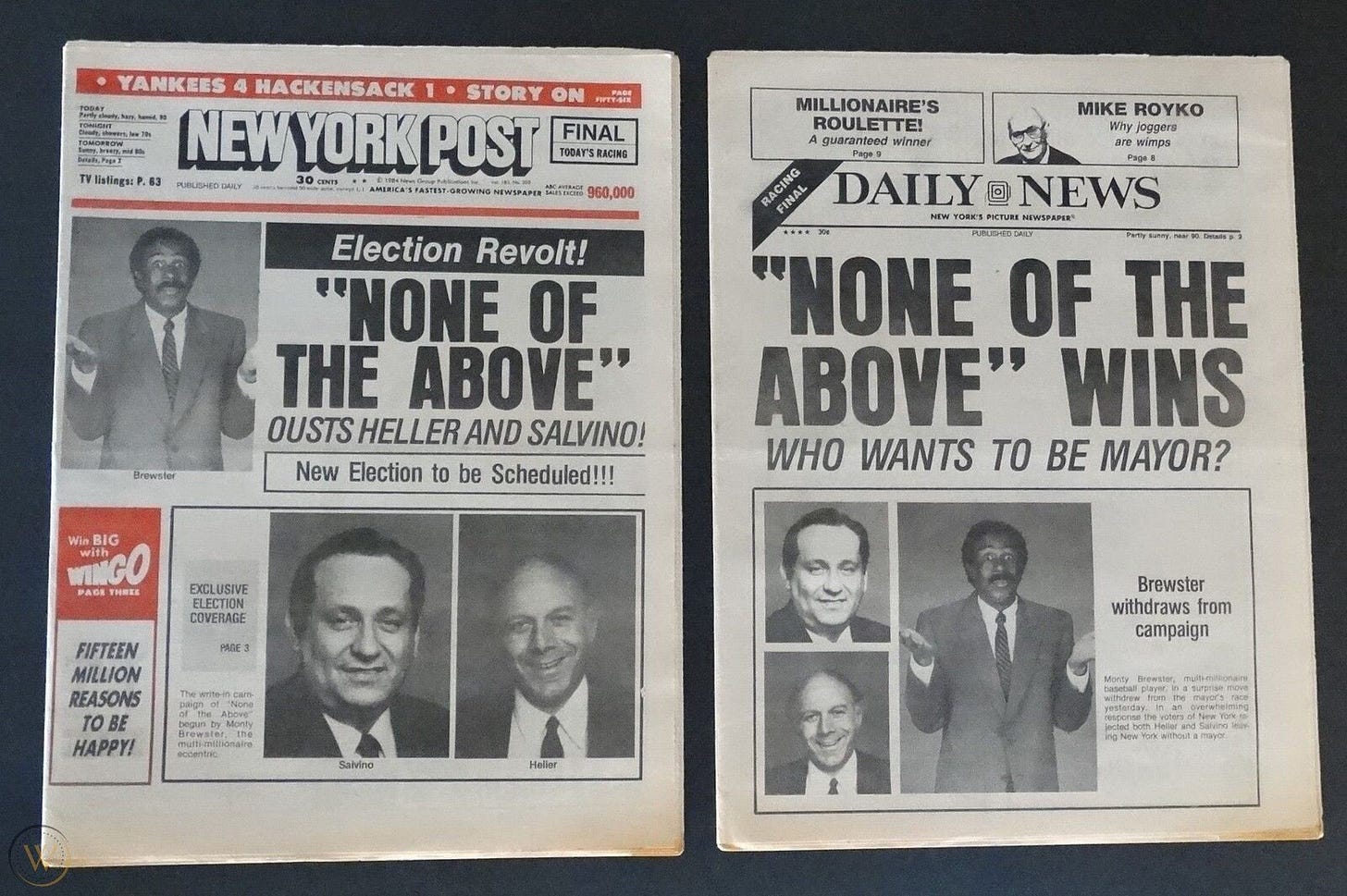

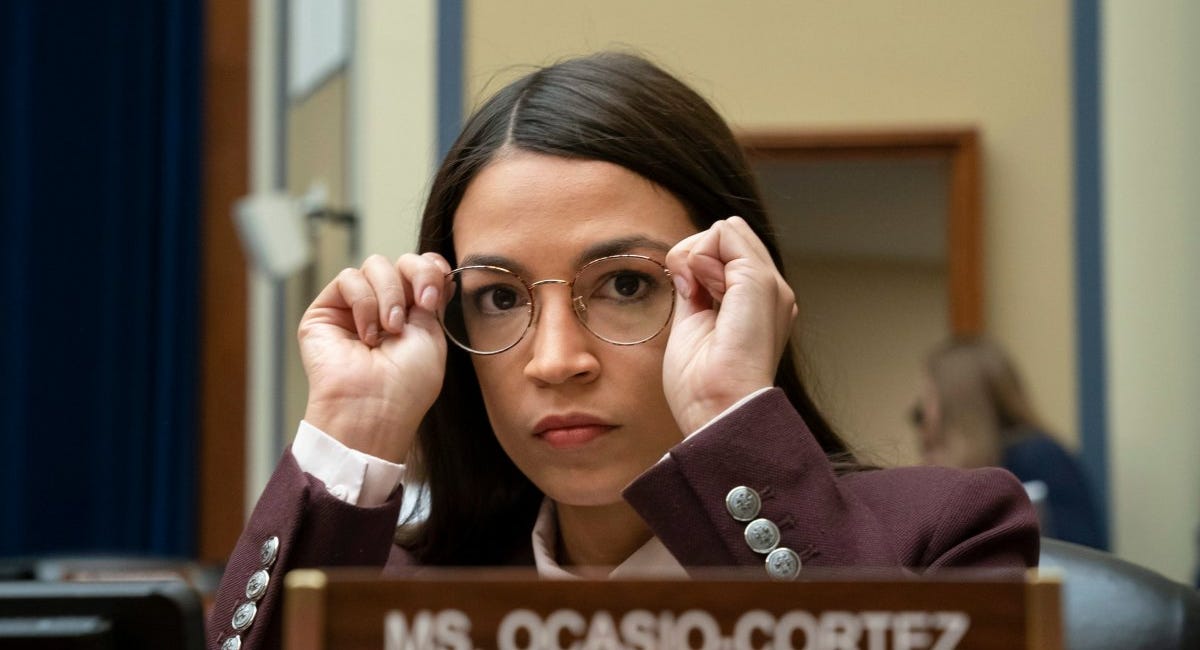
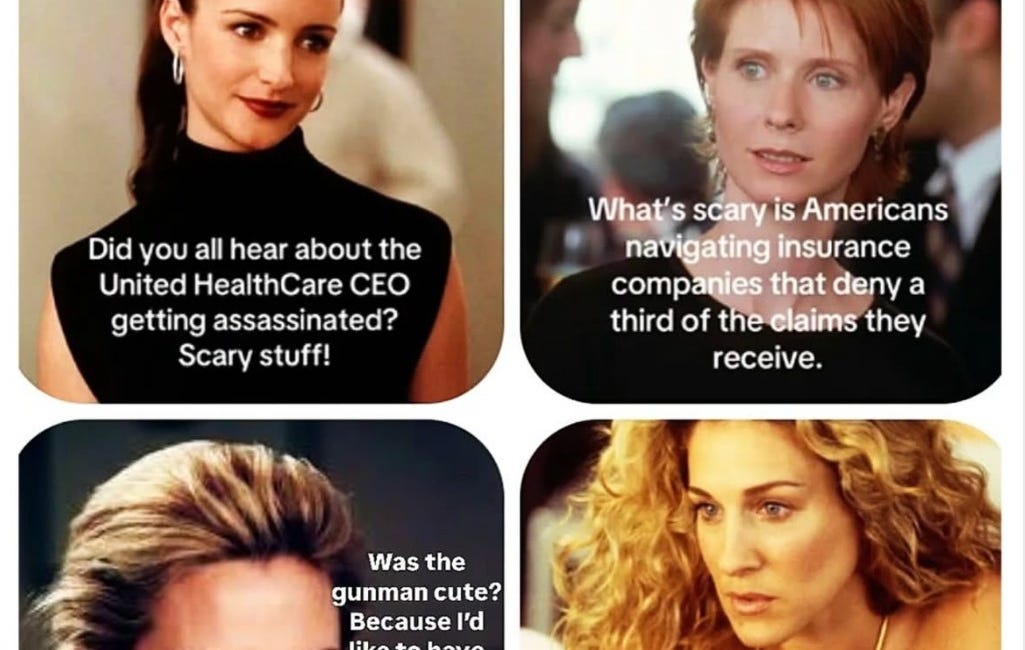
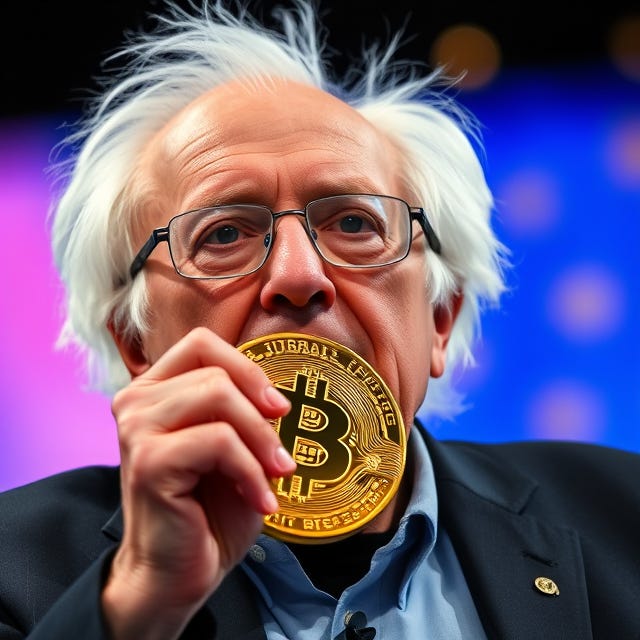
Interesting and informative. I am old and not tech superior. I try. I seek. Learning curve self educator. This is all part of Digital Equity. I advocate for that because I have big problems with all of the tech help. I had no clue about Pritzer. Very interesting stuff. And worth subscribing, to find out more. Who are the Gen Xers on Substack? Is that even known?
I enjoy your work so much! You are on my list as soon as I can do another paid subscriber. Thanks for letting me listen.